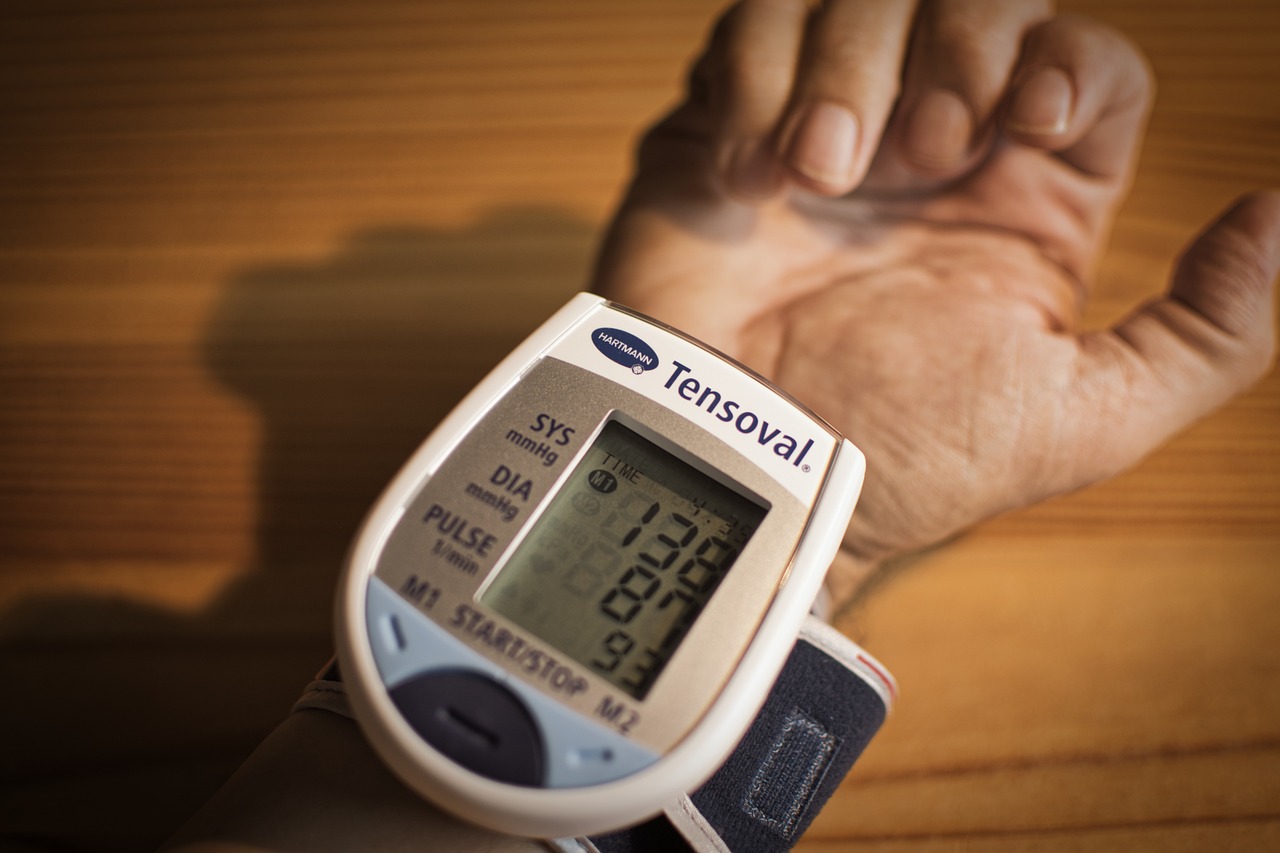In this article, we will explore the topic of blood pressure and what is considered a normal range. Understanding this vital sign is important for maintaining overall health and preventing cardiovascular diseases. We will also touch upon recent scientific studies that have investigated the relationship between blood pressure and various factors. So, let’s dive into the world of blood pressure and uncover what is considered normal.

Discover the Ultimate Weight Loss Secrets Here!
Understanding Blood Pressure
Definition of Blood Pressure
Blood pressure is the force exerted by the circulating blood against the walls of the blood vessels. It is essential for maintaining the circulation of oxygen and nutrients throughout the body. Blood pressure is measured using two values: systolic pressure and diastolic pressure.
Why Is Blood Pressure Important?
Blood pressure is a crucial indicator of overall health and cardiovascular well-being. It is important because it reflects the efficiency of the heart and blood vessels in supplying oxygen and nutrients to the body’s organs and tissues. Maintaining a healthy blood pressure range is essential for preventing cardiovascular diseases and other health complications.
Classifications of Blood Pressure
Blood pressure is classified into different categories based on the measured values. These categories include hypotension (low blood pressure), prehypertension (elevated blood pressure), and hypertension (high blood pressure). Understanding these classifications helps in determining the appropriate monitoring and management strategies for individuals.
Normal Blood Pressure Range
Systolic and Diastolic Values
Systolic blood pressure represents the pressure in the arteries when the heart contracts and pumps blood into the circulation. Diastolic blood pressure, on the other hand, refers to the pressure in the arteries when the heart is at rest and refilling with blood. A normal blood pressure range typically falls within specific systolic and diastolic values.
Consensus on Normal Range
The consensus among medical professionals is that a normal blood pressure range is typically considered to be around 120/80 mmHg. However, it is important to note that the ideal range may vary depending on individual factors such as age, overall health, and medical history. Consultation with a healthcare provider is recommended to determine the optimal blood pressure range for an individual.
Factors Affecting Normal Range
Several factors can affect an individual’s normal blood pressure range. These factors include age, gender, genetics, lifestyle choices, and underlying medical conditions. Understanding these factors can help in determining the potential impact on blood pressure and guide individuals in maintaining a healthy range through appropriate lifestyle modifications and medical interventions if necessary.
Click Here for Proven Fat-Burning Strategies!
Blood Pressure Categories
Hypotension: Low Blood Pressure
Hypotension refers to abnormally low blood pressure levels. While it may not always be a cause for concern, persistent low blood pressure can lead to symptoms such as dizziness, fainting, and fatigue. It is important to identify the underlying causes and manage hypotension to prevent complications and improve overall well-being.
Prehypertension: Elevated Blood Pressure
Prehypertension is a stage where blood pressure levels are higher than the normal range but not yet classified as hypertension. It serves as a warning sign that individuals need to make lifestyle modifications to prevent the progression to hypertension. By adopting healthy habits, such as regular exercise and a balanced diet, individuals can help reduce their blood pressure and maintain overall cardiovascular health.
Hypertension: High Blood Pressure
Hypertension is a common condition characterized by persistently elevated blood pressure levels. It is a significant risk factor for cardiovascular diseases such as heart attacks and strokes. Hypertension can be managed through lifestyle changes, medication, and regular monitoring of blood pressure levels. Early diagnosis and appropriate management are crucial in minimizing the potential health risks associated with hypertension.
Stages of Hypertension
Hypertension is further classified into stages based on the severity of the condition. These stages include Stage 1 hypertension, Stage 2 hypertension, and Hypertensive Crisis. Each stage serves as a guide for healthcare professionals in determining the appropriate treatment approach and target blood pressure levels for individuals diagnosed with hypertension.
Age-Specific Blood Pressure Targets
Blood Pressure Changes with Age
Blood pressure naturally changes with age due to various physiological factors. As individuals grow older, blood vessels may lose their elasticity, and the heart may experience changes in structure and function. These age-related changes in the cardiovascular system can influence blood pressure levels. Understanding the age-specific targets for blood pressure helps in monitoring and managing hypertension effectively.
Blood Pressure Targets for Children
Children have different blood pressure targets compared to adults. The American Heart Association provides guidelines for blood pressure measurement in children based on age, height, and gender. Regular monitoring of blood pressure in children is essential for the early detection of abnormalities and potential prevention of long-term health risks.
Blood Pressure Targets for Adults
For adults, the target blood pressure ranges may vary depending on factors such as overall health, medical history, and presence of underlying conditions. Generally, the consensus is to maintain blood pressure levels below 130/80 mmHg for most individuals. However, specialized care may be needed for individuals with specific health conditions, and healthcare providers can provide personalized targets for blood pressure management.
Blood Pressure Targets for Older Adults
Older adults may have different blood pressure targets compared to younger adults due to the physiological changes that occur with aging. While the optimal blood pressure range for older adults may be slightly higher, it is still necessary to maintain blood pressure within a healthy range to prevent cardiovascular complications. Regular monitoring and consultation with healthcare providers are crucial for establishing personalized blood pressure targets in this population.

Potential Health Risks
Complications of Hypotension
Hypotension, especially when severe or persistent, can lead to various complications. These complications may include inadequate blood flow to vital organs, which can result in symptoms like confusion, dizziness, and even fainting. In severe cases, hypotension can cause damage to the heart, brain, and other organs if left unmanaged. Understanding the potential health risks associated with hypotension highlights the importance of addressing and managing low blood pressure appropriately.
Health Risks of Prehypertension
While prehypertension is not classified as hypertension, it still carries health risks that should not be overlooked. Individuals with prehypertension have an increased risk of developing hypertension if lifestyle modifications are not implemented. Moreover, prehypertension is associated with a higher likelihood of cardiovascular diseases and other health complications. Controlling blood pressure through lifestyle changes can significantly reduce the risks associated with prehypertension.
Consequences of Hypertension
Hypertension is known as the silent killer because it often presents with no symptoms until serious complications arise. If left uncontrolled, hypertension can lead to severe health consequences such as heart attacks, strokes, kidney disease, and vision problems. It is crucial to recognize the potential consequences of hypertension and take proactive measures to manage blood pressure effectively.
Measuring Blood Pressure
Invasive Blood Pressure Measurement
Invasive blood pressure measurement involves direct cannulation of an artery using a needle and catheter to obtain accurate blood pressure readings. This method is typically used in critical care settings or during certain medical procedures. While invasive measurement provides highly accurate results, it is an invasive and potentially uncomfortable procedure.
Non-Invasive Blood Pressure Measurement
Non-invasive blood pressure measurement is the most common method used in clinical settings and home monitoring. It involves using a blood pressure cuff, known as a sphygmomanometer, to measure blood pressure on the upper arm or wrist. Non-invasive measurement is simple, quick, and painless, making it suitable for routine monitoring and screening purposes.
Accuracy and Reliability of Blood Pressure Readings
The accuracy and reliability of blood pressure readings are essential for making informed decisions regarding an individual’s health. To ensure accurate measurements, it is important to follow proper measurement techniques, such as using the appropriate cuff size, positioning the arm correctly, and allowing sufficient rest before measurement. Regular calibration and maintenance of blood pressure measurement devices also contribute to reliable readings.

Monitoring and Managing Blood Pressure
Regular Blood Pressure Checks
Regular blood pressure checks are crucial for monitoring and managing blood pressure effectively. Regular monitoring allows individuals to track their blood pressure trends, evaluate the effectiveness of lifestyle modifications or medications, and detect any potential abnormalities or fluctuations promptly. It is recommended that individuals with hypertension or other cardiovascular conditions regularly check their blood pressure under the guidance of their healthcare provider.
Lifestyle Modifications
Lifestyle modifications play a significant role in managing blood pressure. These modifications include adopting a healthy diet, increasing physical activity, maintaining a healthy weight, limiting sodium intake, moderating alcohol consumption, quitting smoking, and managing stress levels. Implementing these changes can contribute to significant reductions in blood pressure and overall cardiovascular health improvement.
Medications for Blood Pressure Control
In some cases, lifestyle modifications alone may not be sufficient to control blood pressure. Medications may be prescribed by healthcare providers to help regulate blood pressure levels effectively. There are various classes of antihypertensive medications available, each with different mechanisms of action and potential side effects. It is essential to work closely with a healthcare provider to determine the most appropriate medication and dosages based on individual needs.
Risks Associated with Ignoring Blood Pressure
Silent Nature of Hypertension
Hypertension is often referred to as the silent killer because it usually does not present with noticeable symptoms until serious complications develop. Ignoring blood pressure and failing to monitor it regularly can lead to undiagnosed and uncontrolled hypertension, significantly increasing the risk of cardiovascular diseases and other health complications.
Long-Term Effects on Organs
Uncontrolled high blood pressure over a prolonged period can have detrimental effects on various organs. It can strain the heart, leading to conditions such as heart failure, coronary artery disease, and irregular heart rhythms. Hypertension can also damage blood vessels, resulting in atherosclerosis, stroke, and kidney disease. The long-term impact of ignoring blood pressure emphasizes the importance of proactive management and regular monitoring.
Increased Risk of Cardiovascular Diseases
Individuals who ignore blood pressure and fail to take appropriate measures to manage it are at a significantly higher risk of developing cardiovascular diseases. Uncontrolled hypertension can increase the likelihood of heart attacks, strokes, heart failure, and peripheral artery disease. Recognizing the increased risk associated with ignoring blood pressure reinforces the need for early detection, intervention, and ongoing management.

Controversies and Debates
Optimal Blood Pressure Range
While there is a general consensus regarding the normal blood pressure range, ongoing debates exist regarding the optimal blood pressure targets for different populations. Researchers and healthcare professionals continue to explore the potential benefits and risks of more aggressive or lenient blood pressure management strategies. Recent scientific studies have investigated this relationship, shedding light on the importance of individualized blood pressure targets.
Overdiagnosis and Overtreatment
Another controversy surrounding blood pressure management is the issue of overdiagnosis and overtreatment. Some argue that the current guidelines may lead to unnecessary medicalization and medication use, particularly in individuals with lower cardiovascular risk. Balancing the benefits and potential harms of blood pressure management requires caution and consideration of individual factors to avoid overdiagnosis and overtreatment.
Personalized Blood Pressure Management
The concept of personalized medicine extends to blood pressure management as well. Recognizing that each individual is unique and responds differently to various interventions, healthcare providers are increasingly exploring personalized strategies for blood pressure management. Tailoring treatment plans to specific characteristics, such as age, gender, underlying health conditions, and genetic factors, can enhance the effectiveness of blood pressure control and improve overall outcomes.
Conclusion
Maintaining a normal blood pressure range is crucial for overall health and longevity. Understanding the definitions and classifications of blood pressure, monitoring blood pressure targets based on age, and recognizing the potential health risks associated with abnormal blood pressure levels are essential in preventing cardiovascular diseases and other complications. Regular monitoring, lifestyle modifications, and medication, if necessary, form the cornerstones of effective blood pressure management. Ongoing research and advancements in personalized medicine continue to shed light on optimal blood pressure targets and management strategies, ensuring individuals receive the most appropriate care for their unique needs.

